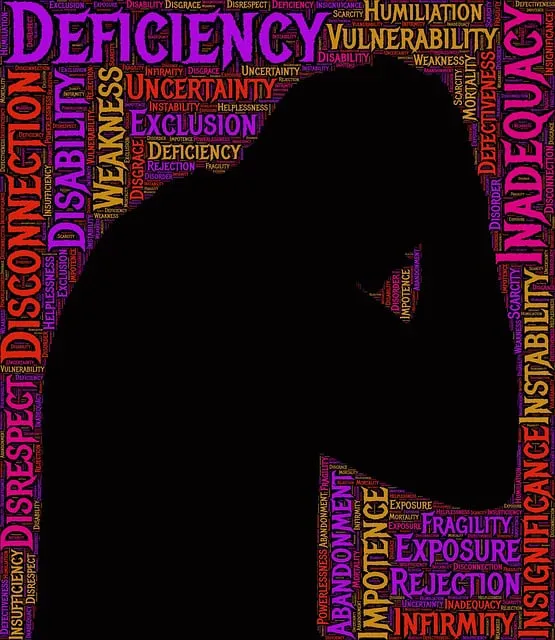Englewood Kaiser Permanente behavioral health services lead in cultural competency training to enhance patient care. By recognizing and respecting diverse backgrounds, they tailor respectful, sensitive treatment, improving satisfaction and outcomes. Innovative programs include interactive workshops, role-playing, community engagement, and evaluations using surveys, focus groups, and case studies to ensure continuous improvement in inclusive, responsive healthcare environments.
Cultural competency training is essential in healthcare to ensure quality patient care and improved outcomes. This article explores critical aspects of cultural competency, highlighting Englewood Kaiser Permanente’s innovative approach to behavioral health services as a model for others to follow. We’ll discuss effective training methods, measure program success, and provide insights into enhancing cultural sensitivity among healthcare providers. By understanding cultural competency, we can navigate diverse patient populations more effectively, fostering better relationships and outcomes.
- Understanding Cultural Competency in Healthcare
- Englewood Kaiser Permanente: A Model for Behavioral Health Services
- Training Approaches to Enhance Cultural Sensitivity
- Measuring Success: Evaluating Cultural Competency Programs
Understanding Cultural Competency in Healthcare

Cultural competency in healthcare refers to the ability of providers and organizations to understand, appreciate, and effectively interact with individuals from diverse cultural backgrounds. It involves recognizing and respecting differences in values, beliefs, traditions, and communication styles among patients, families, and communities. At Englewood Kaiser Permanente behavioral health services, this concept is a cornerstone of patient care, ensuring that every individual receives respectful, culturally sensitive treatment tailored to their unique needs.
By integrating cultural competency into its service delivery model, Englewood Kaiser Permanente behavioral health services not only enhances patient satisfaction but also improves clinical outcomes. This approach fosters an environment where mental wellness coaching programs can be developed and implemented to address the specific mental health education programs design needs of diverse populations. Through continuous learning and development initiatives, healthcare providers at Englewood Kaiser Permanente are equipped with the skills needed to manage stress and promote mental wellness across different cultural contexts, ultimately contributing to a more inclusive and effective healthcare system.
Englewood Kaiser Permanente: A Model for Behavioral Health Services

Englewood Kaiser Permanente stands as a shining example of how cultural competency training can transform healthcare delivery, particularly in behavioral health services. This organization has pioneered innovative approaches to address the unique needs of diverse patient populations. By integrating empathy-building strategies and emotional well-being promotion techniques into their care model, Englewood Kaiser Permanente enhances the overall experience for patients from all backgrounds.
The facility’s success lies in its comprehensive training programs that equip healthcare providers with the skills to improve self-esteem and foster strong therapeutic relationships. Through these initiatives, they’ve created a welcoming environment where individuals feel understood and supported, ultimately leading to more effective treatment outcomes. This model offers valuable insights for other healthcare institutions aiming to enhance their cultural competency and better serve diverse communities.
Training Approaches to Enhance Cultural Sensitivity

Englewood Kaiser Permanente behavioral health services emphasizes the importance of cultural competency training to improve patient care and outcomes. Effective training approaches go beyond basic cultural awareness and focus on enhancing emotional healing processes through culturally sensitive practices. By incorporating strategies that address inner strength development, healthcare providers can create a supportive environment that respects diverse backgrounds, beliefs, and values.
These initiatives involve interactive workshops, role-playing scenarios, and community engagement to foster coping skills development among both staff and patients. Through these educational methods, healthcare professionals learn to navigate complex cultural landscapes, understand unconscious biases, and adapt their communication styles to better connect with individuals from various ethnic, racial, and social backgrounds. Such efforts not only strengthen patient-provider relationships but also promote holistic healing and improved mental well-being.
Measuring Success: Evaluating Cultural Competency Programs

Evaluating the success of cultural competency training programs is essential to ensure they meet their intended objectives and positively impact patient care. At Englewood Kaiser Permanente behavioral health services, this process involves a multi-faceted approach. They employ various assessment tools to gauge both knowledge acquisition and attitudinal changes among healthcare providers. These assessments may include surveys, focus groups, and case studies designed to measure participants’ understanding of cultural competency concepts and their application in clinical settings.
For instance, the program could assess communication strategies used by staff when interacting with patients from diverse backgrounds, evaluating how effectively they tailor their approach to respect individual cultural preferences and needs. Self-awareness exercises and stress reduction methods are also integral to the evaluation process, helping healthcare professionals recognize their own biases and develop coping mechanisms for challenging situations. Through these comprehensive evaluations, Englewood Kaiser Permanente aims to continuously improve its cultural competency training, fostering a more inclusive and responsive healthcare environment.
Cultural competency training is a vital component in enhancing healthcare delivery, particularly within specialized services like behavioral health. As demonstrated by Englewood Kaiser Permanente’s innovative approach to integrating cultural sensitivity into their practices, these programs can significantly improve patient outcomes and satisfaction. By adopting diverse training methods and rigorously evaluating their impact, healthcare providers can navigate the complex landscape of cultural differences, fostering more inclusive and effective care environments. This strategic focus on cultural competency is a game-changer in ensuring equitable access to quality behavioral health services for all communities.






